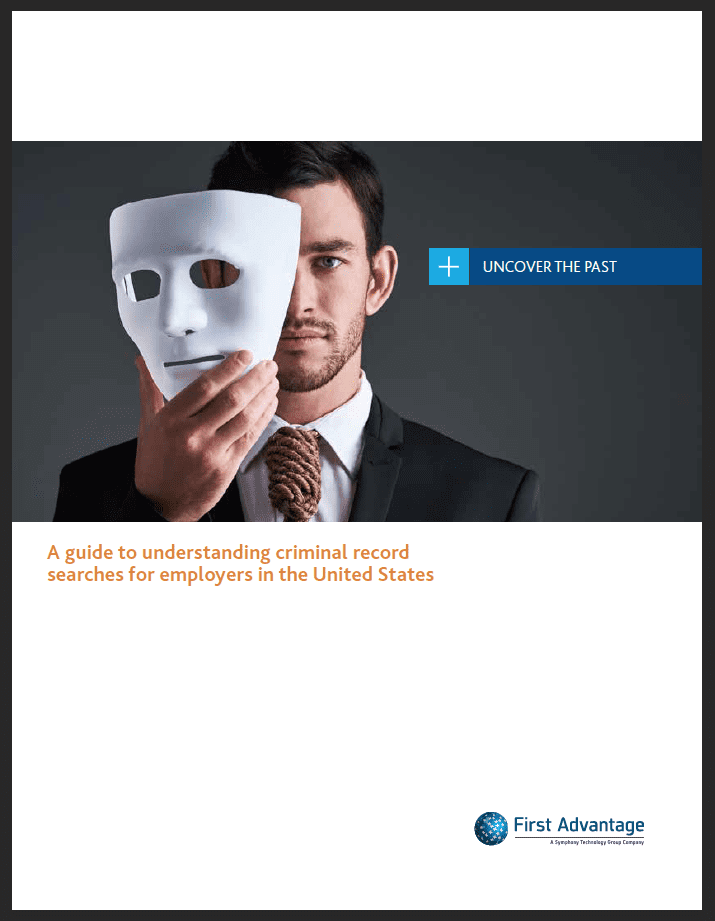SEC Enforcement Slowly Tilting Fiduciary Needle toward ERISA
At stake in the prolonged debate over a “best-interest” standard of care for retirement advice are $7.5 trillion in 401(k)-type assets and $8.4 trillion in IRA assets. Whether or not the Department of Labor (DOL) and the Securities and Exchange Commission (SEC) will eventually come to agreement on a uniform standard of conduct remains to be seen, but the SEC’s inspection and enforcement arms are slowly forging ahead by imperceptibly moving the regulatory needle in favor of the DOL’s higher standard for advice-givers. Compliance officers, as well as plan sponsors’ HR Departments and the investment committees that oversee 401(k)-type defined contribution plans, are wise to examine this trend, as it can impact their business moving forward.
The two principal regulators of investment advice – the Securities and Exchange Commission (SEC) and Department of Labor (DOL) – are immersed in writing new rules governing the fiduciary standard that protects retirement investors and others. At stake in what has been a prolonged debate over a “best-interest” standard of care are $7.5 trillion in 401(k)-type assets and $8.4 trillion in IRA assets.
Whether or not the two federal agencies will eventually come to terms on a uniform standard of conduct remains to be seen, but it appears the SEC’s inspection and enforcement arms are slowly forging ahead by imperceptibly moving the regulatory needle in favor of the DOL’s higher standard for advice givers.
Opponents of the DOL fiduciary rule argue the higher standard imposed under the Employee Retirement Income Security Act of 1974 (ERISA) unfairly discourages the use of commission-based products as well as the accessibility of advice to middle-income wage earners. Parts of the DOL’s new rule went into effect in June, sweeping in thousands of insurance and securities brokers under a fiduciary standard for the first time, as well as increasing the liability and complexity of compliance requirements for investment advice. The SEC generally relies on disclosure of conflicts to mitigate fiduciary breaches under securities laws, while the DOL requires more proactive measures to manage conflicts in the interests of the investor.
Harmonizing the two very distinct approaches to fiduciary advice will be challenging for both agencies. However, with the remainder of the DOL’s rule recently delayed for 18 months, both the SEC and DOL are intent on trying to make it easier for firms and their advisors to comply with their respective fiduciary standards.
Whether the DOL can meet its self-imposed deadline for revamping fiduciary advice rules by July 2019 is open to question. But in the meantime, the SEC’s examination and enforcement arms appear to be moving closer to ERISA’s fiduciary standard mandating reasonable compensation for investment advice by focusing on two key issues: excessive fees resulting from the use of higher-cost mutual fund share classes in retail and retirement accounts and compensation received for rollover advice when a 401(k) plan participant leaves his/her employment.
Scrutinizing the Varying Costs of Share Classes
The original impetus for the SEC’s regulatory focus on excessive fees, and not just failure to disclose them under securities laws, probably had its root in a wave of class-action litigation under ERISA that began more than a decade ago. By one law firm’s count, more than 75 excessive fee class-action lawsuits have been filed. Most of these cases involve large 401(k) plans and often focus on the use of more expensive retail share classes as 401(k) plan investment options rather than lower-cost institutional shares. Both the SEC’s Office of Compliance Inspections and Examinations (OCIE), which inspects registered investment advisers for compliance, and the SEC’s Division of Enforcement appear to have taken notice.
Recent enforcement settlements by the SEC support this ERISA-like fiduciary trend that began several years ago. Although the SEC and Financial Industry Regulatory Authority (FINRA) have traditionally brought cases earlier for improper share class selection, their recent efforts have focused on more nuanced differences in costs, such as retail shares that carry a 12b-1 fee and identical institutional fund shares, which do not. Below are three cases surrounding these higher-cost shares:
- In a 2013 case against Manarin Investment Counsel, Ltd., the SEC stated the defendant “breached their fiduciary duties as investment advisers by causing the Funds to buy the Class A shares of underlying mutual funds even when the Funds were eligible to own lower-cost ‘institutional’ shares of the very same Investment Funds.”
- The SEC continues to focus on share classes today. This past September, the SEC charged SunTrust Investment Services, Inc. with, among other things, breaching its fiduciary duty by improperly recommending high-cost share classes of mutual funds to clients with wrap-fee accounts.
- Even more recently, the SEC charged Westport Capital Markets, LLC, in its capacity as a broker-dealer, with investing client assets in mutual fund shares paying 12b-1 fees when cheaper shares of the same funds were available.
Anecdotal reports from compliance firms also suggest that the OCIE in the last couple of years has begun asking about the share classes used by advisors during routine inspections. This approach is clearly supported by SEC risk alerts and other notices.
Even though securities brokers are not subject to a fiduciary standard, FINRA also has been active, stating in one enforcement release from 2014 that “…investors must be able to trust that their brokerage firm will offer the lowest-cost share classes available to them. When firms fail to do so, we will take appropriate action.”
Focus on Rollover Advice
In combination with a renewed interest in share class costs, both the SEC and FINRA have turned their attention to rollover advice. Prior to the DOL’s new fiduciary rule, rollover advice was not deemed to be a fiduciary act. Part of the rollover emphasis by the DOL, SEC and FINRA can be attributed to a 2013 report by the Government Accountability Office (GAO), citing a need by the DOL to focus more on the higher costs associated with rollovers from plans to IRAs, rather than other options, such as staying put or considering a plan-to-plan rollover. Among other things, the GAO found that a 401(k) plan’s service provider often encouraged rolling over 401(k) plan savings into an IRA “even with only minimal knowledge of a caller’s financial situation.”
The GAO study prompted the DOL, which was in the middle of re-drafting its fiduciary rule, to include rollover advice as a fiduciary act for the first time. Both the SEC and FINRA promptly responded by making rollovers a yearly priority for inspections.
Challenges Faced by SEC for Comparable Fiduciary Rule
Notwithstanding this new focus by other regulators that are beginning to align more closely with the DOL’s fiduciary rule, the challenge for a comparable SEC rule is threefold:
- First, the SEC must consider how to fine-tune its rules for stockbrokers and investment advisers offering retail investment advice. The Dodd-Frank Wall Street Reform and Consumer Protection Act of 2010 authorized the SEC to impose such a duty on brokers providing retail investment advice, providing it’s no less stringent than the fiduciary standard for investment advisers.
- Second, the SEC must attempt to harmonize any new broker/adviser fiduciary rule with the DOL’s more robust fiduciary requirements for ERISA fiduciaries.
- Third, it must work with state insurance regulators to attempt to mesh its own rulemaking with state insurance rules in as much as ERISA also covers insurance transactions in retirement accounts.
Complicating things even further is that under the SEC’s fiduciary rules governing investment advisers, the SEC is not bound to prohibit excessive fees like the DOL is under ERISA. ERISA requires fiduciaries to “defray reasonable expenses of administering the plan,” which includes investment costs. In contrast, the SEC states on its website that “[a]dvisers and clients are free to mutually agree to the amount of the adviser’s compensation for its services, and the method by which it will be paid.” However, in an accompanying footnote, SEC staff goes on to say that asset management fees of more than 2 percent may violate the antifraud provisions of the Advisers Act unless the advisory firm discloses to existing and prospective clients that its fees are higher than those charged by other advisers for similar services.
As a matter of practice, the DOL does not countenance disclosure alone as an effective means of managing conflicts. In its own fiduciary rule adopted in 2016, the DOL notes that “the final exemption [for conflicted advice] does not chiefly rely on disclosure as a means of protection, but rather on the imposition of fiduciary standards of conduct, anti-conflict policies and procedures and the prohibition of misaligned incentive structures.”
The SEC faces other challenges with regard to a fiduciary rule for commission-based brokers. Although it oversees FINRA and must approve FINRA rules, the brokerage industry will be inclined to strongly object to the fiduciary standard imposed under the Advisers Act. Moreover, the SEC has no authority over insurance products, except for shared jurisdiction with state insurance commissioners for oversight of variable annuities, a hybrid product. Insurance regulators only began to adopt a suitability standard for annuity product sales in the early 2000s, and a handful of states have no requirements.
Attempting Harmonization
By the time we reach the end of the next 18 months of the regulators’ harmonization efforts, we expect the DOL and SEC fiduciary standards to move closer together and cover a broader swath of advice providers. Meanwhile, FINRA will probably try to maintain the status quo but focus more on the true transactional-based segment of the industry, perhaps resulting in a “suitability plus” standard for brokers able to avoid full fiduciary status. There is also speculation that the DOL’s revised rulemaking would allow advisors that satisfied the SEC’s disclosure rules to meet its own requirements under ERISA. That lowering of the ERISA fiduciary standard could, in turn, prompt a lawsuit by consumer advocates.
In the meantime, the SEC staff seems to be moving forward on its own, perhaps prompted by class-action trends under ERISA in which participants have scored notable court victories in excessive fee cases. Ironically, this has resulted in the SEC staff beginning to articulate a more robust fiduciary standard that is lining up more closely with ERISA’s higher standard of accountability for fiduciaries.



 Duane Thompson is president of Potomac Strategies LLC, a legislative and media relations consulting firm in the Washington, D.C. area. He also serves as Senior Policy Analyst at Fi360. Previously he was managing director of the Financial Planning Association's Washington office. Thompson has 20 years of experience lobbying on business issues in both Washington and more than two dozen state capitals around the country. As FPA's chief lobbyist, Duane was responsible for developing and managing a combined lobbying, public relations and litigation campaign that successfully challenged the SEC's controversial "Merrill Lynch" rule. Thompson holds the Accredited Investment Fiduciary® designation, a Master's in journalism from the University of Missouri, and a Bachelor of Arts in history and studio art from Principia College in Illinois. He resides in Kensington, Maryland, with his two children.
Duane Thompson is president of Potomac Strategies LLC, a legislative and media relations consulting firm in the Washington, D.C. area. He also serves as Senior Policy Analyst at Fi360. Previously he was managing director of the Financial Planning Association's Washington office. Thompson has 20 years of experience lobbying on business issues in both Washington and more than two dozen state capitals around the country. As FPA's chief lobbyist, Duane was responsible for developing and managing a combined lobbying, public relations and litigation campaign that successfully challenged the SEC's controversial "Merrill Lynch" rule. Thompson holds the Accredited Investment Fiduciary® designation, a Master's in journalism from the University of Missouri, and a Bachelor of Arts in history and studio art from Principia College in Illinois. He resides in Kensington, Maryland, with his two children. 









